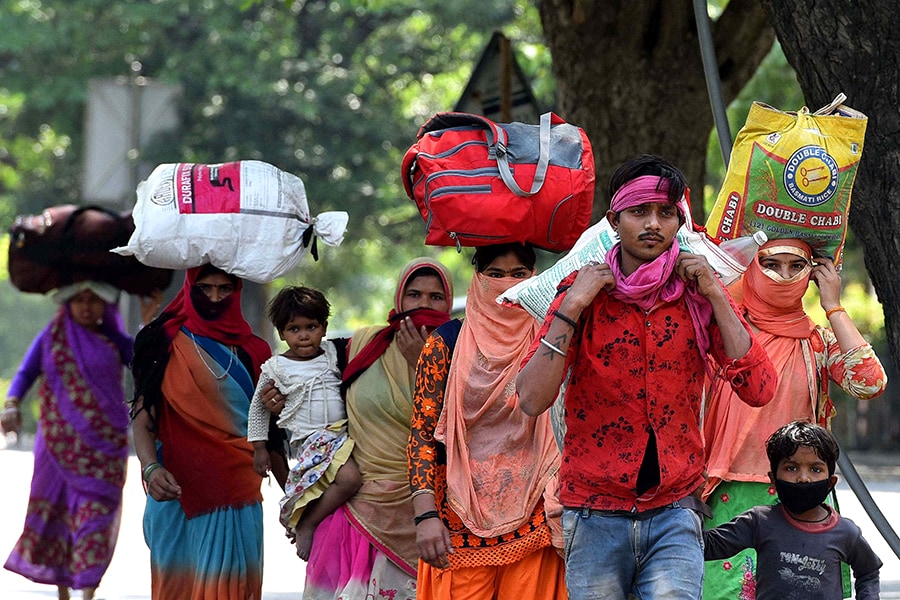
Opinion: FM balances fiscal prudence and need for stimulus
The measures that Finance Minister Nirmala Sitharaman announced on Thursday for farmers, middle-income households and migrant labourers will have long-term effects; however, the success of short-term initiatives will lie in their execution
 Image: Mohd Zakir/Hindustan Times via Getty Images
Image: Mohd Zakir/Hindustan Times via Getty Images
Fiscal prudence continues to be the theme of the stimulus announcements by Finance Minister Nirmala Sitharaman, as there is not much headroom available to the government.
The measures announced include several long-term reforms that will help the country as the economy gets back on its feet. The short-term measures announced to provide succor to the poor and migrants, however, will need to be implemented well to ensure that the benefits reach the needy as soon as possible. The state governments have been entrusted with this responsibility, and they will need to piggyback on the informal ‘supply chain’ for food and grain distribution, as has been seen when communities have come together to provide relief in the first two months of the lockdown.
The special credit scheme for the street vendors announced will ease the availability of credit for them. The impact of this is not only immediate but long term; it will help bring down the cost of credit for the vendors from 5% to 10% a day—yes, per day. It will also help create credit history for them and allow them to access formal financing, without depending on money lenders. Fintech companies could help reach these street vendors; however, it will also need to be complemented with a financial literacy programme for them.
The working capital needs of the farmers have also been addressed through the emergency working capital fund, NABARD, which will provide necessary cash to farmers to meet post-harvest expenses. The agenda for financial inclusion and formal credit availability has been furthered through the announcements related to Kisan Credit Cards (KCC). Additional concessional credit through the KCC and extension of the facility to animal husbandry and fishermen is laudable.
The measures of providing employment and income to the migrant labourers who are headed home will support them in the immediate term as many have lost their savings in these two months. However, the flip side of this is the delay in the return of labour, not expected to return to cities before November, considering the onset of the monsoons in June, sowing season, harvesting season, followed by the festive season. Industry will need to significantly incentivize labourers to return, with higher wages, better living and working conditions. Technology and automation is likely to see more adoption given these scenarios.







